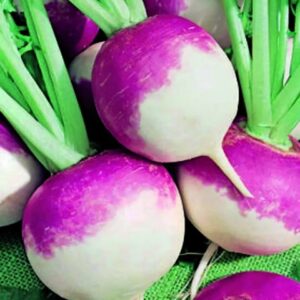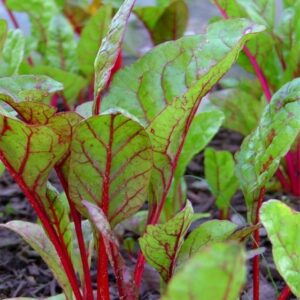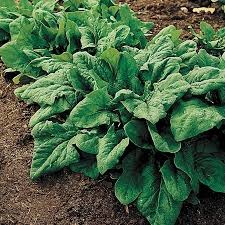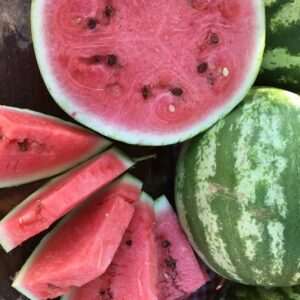Rosa Bianca variety of Aubergine berenjena
Description of Rosa Bianca variety of Aubergine berenjena.
The Rosa Bianca variety of eggplant, or aubergine berenjena, is prized for its unique appearance and delicate flavor. It features a round to teardrop shape with creamy white skin streaked with shades of lavender and pink. Its flesh is tender, creamy, and almost seedless, making it ideal for various culinary applications. When cooked, Rosa Bianca eggplant develops a mild, slightly sweet flavor with a buttery texture, making it perfect for grilling, roasting, sautéing, or even for stuffing. This heirloom variety adds visual interest and gourmet flair to any dish it’s featured in.
Planting instructions for Rosa Bianca variety of Aubergine berenjena.
To plant the Rosa Bianca variety of eggplant, follow these general instructions:
- Select a Suitable Location: Choose a sunny spot in your garden that receives at least 6-8 hours of sunlight daily. Eggplants thrive in warm temperatures, so ensure the location provides adequate warmth.
- Prepare the Soil: Eggplants prefer well-drained, fertile soil with a pH level of around 6.0 to 6.8. Prior to planting, work organic matter such as compost or aged manure into the soil to improve its structure and fertility.
- Start Seeds Indoors: Rosa Bianca eggplants, like most varieties, benefit from starting seeds indoors about 6-8 weeks before the last expected frost date in your area. Plant seeds in seed-starting trays filled with seed-starting mix, ensuring they’re about ¼ inch deep. Keep the soil consistently moist and maintain a temperature of around 70-80°F (21-27°C) for optimal germination.
- Transplant Seedlings: Once the seedlings have developed several sets of true leaves and the threat of frost has passed, transplant them outdoors. Space the seedlings about 18-24 inches apart in rows or in raised beds.
- Direct Seeding (Optional): In regions with long growing seasons and warm climates, you can directly sow Rosa Bianca eggplant seeds outdoors after the soil has warmed to at least 70°F (21°C).
- Watering: Eggplants require consistent moisture to thrive. Water the plants deeply and regularly, aiming to keep the soil evenly moist but not waterlogged. Mulching around the base of the plants can help retain moisture and suppress weeds.
- Fertilization: Fertilize the plants regularly throughout the growing season with a balanced fertilizer or one formulated specifically for vegetables. Follow the manufacturer’s instructions for application rates and timing.
- Support: Depending on the size and growth habit of the Rosa Bianca eggplant plants, you may need to provide support such as stakes or cages to prevent them from toppling over under the weight of the fruit.
- Pest and Disease Management: Keep an eye out for common pests such as aphids, flea beetles, and caterpillars, as well as diseases like fungal infections and bacterial wilt. Employ integrated pest management techniques and use organic controls when possible.
- Harvesting: Rosa Bianca eggplants are typically ready for harvest 65-80 days after transplanting, depending on growing conditions and climate. Harvest the fruits when they are glossy, firm, and reach their mature size, using pruning shears or a sharp knife to cut the stems.
Description of Rosa Bianca variety of Aubergine berenjena.
The Rosa Bianca variety of eggplant, or aubergine berenjena, is prized for its unique appearance and delicate flavor. It features a round to teardrop shape with creamy white skin streaked with shades of lavender and pink. Its flesh is tender, creamy, and almost seedless, making it ideal for various culinary applications. When cooked, Rosa Bianca eggplant develops a mild, slightly sweet flavor with a buttery texture, making it perfect for grilling, roasting, sautéing, or even for stuffing. This heirloom variety adds visual interest and gourmet flair to any dish it’s featured in.
Planting instructions for Rosa Bianca variety of Aubergine berenjena.
To plant the Rosa Bianca variety of eggplant, follow these general instructions:
- Select a Suitable Location: Choose a sunny spot in your garden that receives at least 6-8 hours of sunlight daily. Eggplants thrive in warm temperatures, so ensure the location provides adequate warmth.
- Prepare the Soil: Eggplants prefer well-drained, fertile soil with a pH level of around 6.0 to 6.8. Prior to planting, work organic matter such as compost or aged manure into the soil to improve its structure and fertility.
- Start Seeds Indoors: Rosa Bianca eggplants, like most varieties, benefit from starting seeds indoors about 6-8 weeks before the last expected frost date in your area. Plant seeds in seed-starting trays filled with seed-starting mix, ensuring they’re about ¼ inch deep. Keep the soil consistently moist and maintain a temperature of around 70-80°F (21-27°C) for optimal germination.
- Transplant Seedlings: Once the seedlings have developed several sets of true leaves and the threat of frost has passed, transplant them outdoors. Space the seedlings about 18-24 inches apart in rows or in raised beds.
- Direct Seeding (Optional): In regions with long growing seasons and warm climates, you can directly sow Rosa Bianca eggplant seeds outdoors after the soil has warmed to at least 70°F (21°C).
- Watering: Eggplants require consistent moisture to thrive. Water the plants deeply and regularly, aiming to keep the soil evenly moist but not waterlogged. Mulching around the base of the plants can help retain moisture and suppress weeds.
- Fertilization: Fertilize the plants regularly throughout the growing season with a balanced fertilizer or one formulated specifically for vegetables. Follow the manufacturer’s instructions for application rates and timing.
- Support: Depending on the size and growth habit of the Rosa Bianca eggplant plants, you may need to provide support such as stakes or cages to prevent them from toppling over under the weight of the fruit.
- Pest and Disease Management: Keep an eye out for common pests such as aphids, flea beetles, and caterpillars, as well as diseases like fungal infections and bacterial wilt. Employ integrated pest management techniques and use organic controls when possible.
- Harvesting: Rosa Bianca eggplants are typically ready for harvest 65-80 days after transplanting, depending on growing conditions and climate. Harvest the fruits when they are glossy, firm, and reach their mature size, using pruning shears or a sharp knife to cut the stems.





